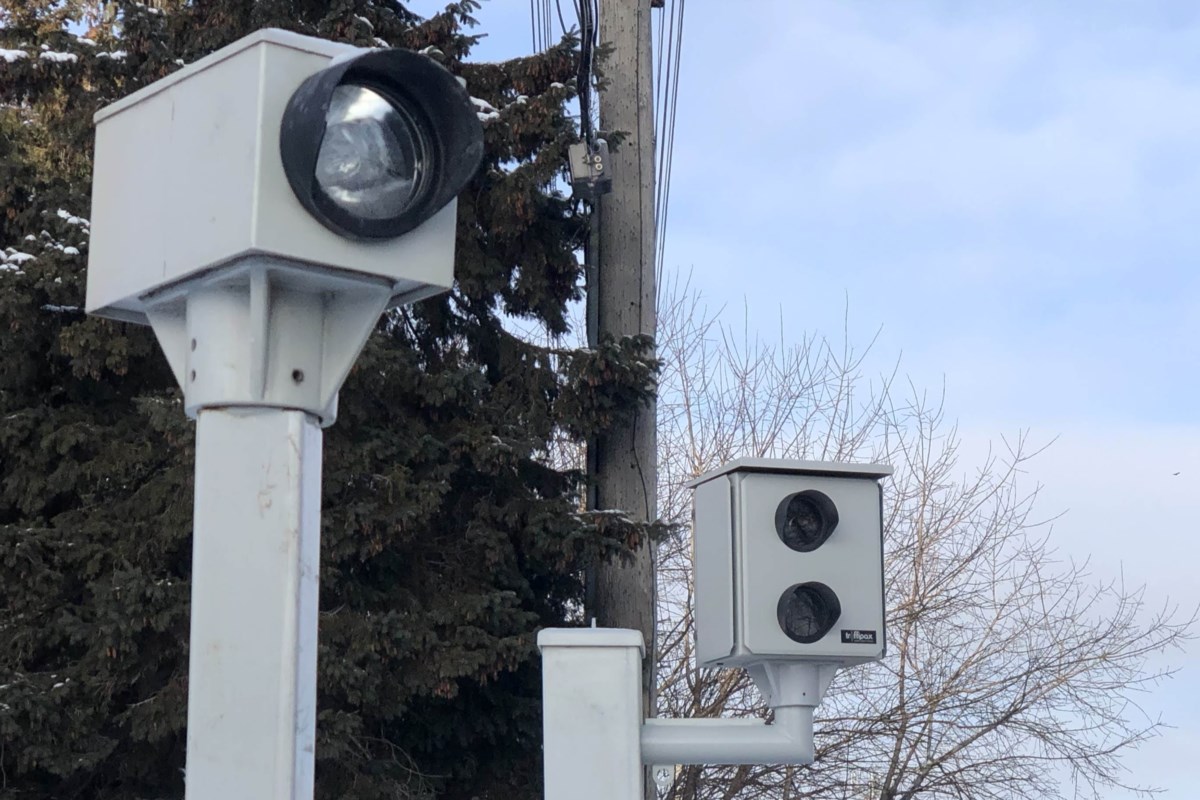Council rejects red light cameras
The council refuses to join the provincial program, saying the city should improve traffic management before fining drivers.
THUNDER BAY – Thunder Bay will not join the dozen or so communities participating in Ontario’s Red Light Camera Program, despite a strong recommendation from city staff.
A large majority of city councilors were suspicious of the five-year, 10-camera commitment required by the provincial program, as well as its estimated annual cost of $ 875,000, when the issue was debated Monday night.
Launched in 1998, the program uses sensors to automatically capture images of drivers driving at red lights. Tickets, which cost $ 325, are processed in Toronto and mailed to the registered owner of the vehicle, with municipalities making the bulk of the revenue.
Advisors were not convinced that recouping an estimated investment of $ 4.4 million would suffice to install and operate the program over five years. Even if it was, Coun said. Mark Bentz, it would be thanks to a huge spike in fines.
“To be revenue neutral, we would need to fine our citizens close to $ 5 million over the next five years,” he said. “I don’t think that’s a good way to fund things. And let’s say it wasn’t income neutral, we have to tap into [tax revenues]. “
The program would reduce one of the leading causes of road deaths and serious accidents, city staff said, and was a constant money generator for municipalities, at least in the short term.
None of the 12 participating municipalities in 2020 had failed to hit the program’s breakeven point, said traffic technologist David Binch, who highlighted the program’s potential safety and economy benefits.
Red light violations account for more than a quarter of fatal road crashes, although they represent less than one percent of traffic convictions, he noted.
Red light cameras have reduced fatal right-angle or “T” collisions in Canadian municipalities by up to 25 percent.
Severe collisions in cities that have signed up to Ontario’s program have fallen by nearly a third at intersections with cameras, the city found. The same studies found that cameras also caused a 15% increase in rear-end collisions, which are less dangerous and much less fatal.
The red light camera program would generate revenues of between $ 2 million and $ 5.4 million over five years, according to staff estimates. Cameras tend to become less cost effective over time as drivers become more familiar with locations and change their behavior.
The Council requested an additional public consultation on the matter in March. The public’s contribution was almost evenly split, with 50.7 percent of 473 city poll respondents saying they did not approve of the program.
Mayor Bill Mauro joined a number of councilors in arguing that the city should improve traffic management before adopting a punitive approach.
“I prefer that we focus on the timing of the lighting system rather than the red light cameras – I think that would definitely result in a much better behavior,” he said.
“Let’s make our circulation system work properly,” Bentz agreed. “It never ceases to amaze me when I try to drive through town how many times I have to stop and how short our traffic lights are.
“It’s so frustrating for drivers, and you wonder why some people start to ignore red lights – it’s because we don’t have a working system.”
Com. Kristen Oliver agreed the cost of the program was “intimidating,” but countered that the tickets were effective in changing behavior.
“Laws are not a buffet,” she said. “You don’t choose which ones you want to follow, they’re there for a reason.”
Com. Brian McKinnon said replacing lights with roundabouts, as the city is now doing for the first time in Edward and Redwood, was another proven strategy to reduce fatal collisions.
The City is investing in its traffic light system with the aim of synchronizing traffic lights on major arteries over the next few years.
Council voted 8 to 3 against the recommendation to join the red light camera program.
Councilors Ch’ng, Foulds and Oliver voted for; Councilors Aiello, Bentz, Fraser, Hamilton, McKinnon, Ruberto, You and Mayor Bill Mauro voted against.
The margin would have been greater if the Council. Rebecca Johnson had not abandoned the virtual meeting due to technical issues, after firmly declaring her intention to vote against.

